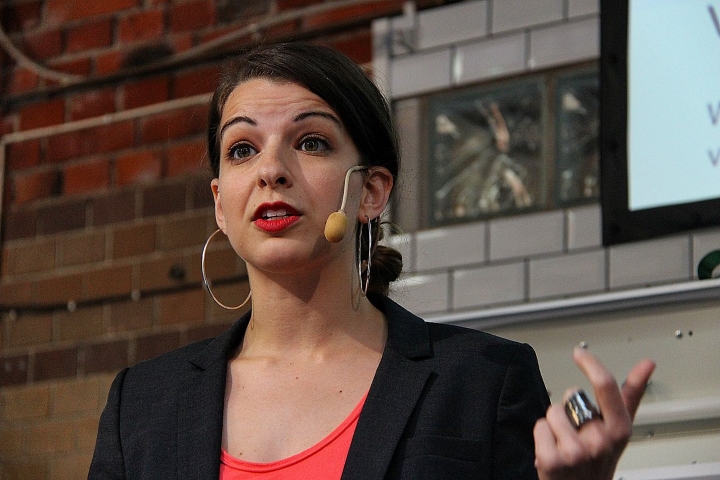It seems that video gaming is no longer the male-dominated arena it used to be in the past. As a matter of fact, according to a report by the Entertainment Software Association (ESA for short), female gamers comprise 44 % of total gamers, so more and more ladies are having fun gaming than ever before.
And more proof gaming’s mainstream appeal amongst women is the fact that renowned video game sports series FIFA will feature a female player on the cover of its latest edition for the first time in its history, which is a remarkable thing for a game based on a male-dominated sport like European football.
And more proof of the rise of the female gamer is the fact that there are more women making money in the big professional tournaments than ever. For instance, Canadian lady Sasha “Scarlett” Hostyn has made over $100,000 (£64,000) playing Blizzard’s real-time strategy game Starcraft II in gaming tournaments, beating the guys at their own game.
Now most guys (me included) don’t find being beaten by a woman at a video game annoying in any way, there is nothing wrong with losing a game online to a more skilled player, it’s just a fact of life – there is always someone who can best you in a game, whether that person is male or female.
But a new joint study by the University of New South Wales and Miami University has shown that losing to females seems to rub some male players the wrong way. The study looked at comments made by players during 163 games of Microsoft’s Halo 3. Now those 163 might not be a huge sample of games; but still, the results are pretty revealing.
While cordiality between male gamers seemed to be the norm, regardless of whether players were winning or losing, things were different when the girls got involved. The less skilled players who were losing games more often had a tendency to verbally abuse the female crowd, that is, they behaved in a sexist way.
And they were even more likely to insult females when they lost directly to them. Is it because gaming was such a male-dominated pastime in the past (and because they view gaming as “their game”), or because they simply feel threatened that these guys became sexist monsters during the 163 Halo 3 games that comprised this study? Or is there more to this than that?
It is clear that this study proves that sexism is still a major problem in the video game world, and this sort of behaviour towards female gamers is what sparked the infamous Gamergate controversy, for instance. Gamergate was mostly about video game sexism, and a backlash by gamers used to seeing stereotypes like the “damsel in distress” against feminist activists like Anita Saarkesian, who were harassed during the whole affair just because they campaigned for the equal treatment of women in video games.
And the fact that more and more games feature strong independent heroines (like the upcoming Horizon: Zero Dawn) who are not super curvy and busty like the Lara Croft of the 90’s or are not damsels in distress has put many male gamers on the defensive. The just don’t want their traditional “male fantasy video game world” to crumble before their eyes.
In the end though, some male gamers should accept that times change, and instead of disparaging female gamers because they can beat them in a game, they should hone their skills and improve their play. Defensive and sexist attitudes do no good for anyone – and video gaming should just be the enjoyable, rewarding pastime it has always been, whether you are sharing your online gaming space with the guys or the ladies.
Halo 3
SOURCE: GiantBomb.
COPYRIGHT: Microsoft Game Studios.


